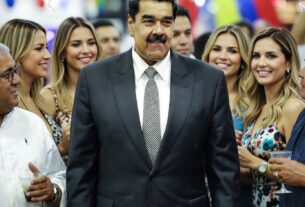Spoiler alert: I do not believe in putting politicians on pedestals. If you think national figures are heroes, you should skip this article.)
History (predictably) repeats.
In 1915, the UK, alongside its allies, launched the Gallipoli Campaign against the Ottoman Empire to prevent a potential alliance between Germany and Russia, thereby opening a new front to relieve pressure on Russia.
Winston Churchill, then First Lord of the Admiralty, proposed a naval attack on the Dardanelles to capture Constantinople (now Istanbul). After initial naval failures due to Ottoman mines and fortifications, a land invasion was attempted on April 25, 1915.
British, Australian, New Zealand, and French troops landed on the Gallipoli Peninsula but faced fierce resistance, leading to a stalemate and eventual withdrawal in January 1916.
History is filled with alcoholics.
Of course, history has shown Churchill (and his British peers) to be an arrogant drunk who couldn’t lead a gaggle of geese across a road, much less win a war. But this is how power politics are played. Inept inbreds with no skin in the game.
Which brings us to Ukraine. It would be obvious to a plastic, pink lawn pelican that Putin was not going to give up Crimea and their Navy base in Sevastopol. And just as obvious, Joseph Biden, one of the key parts of the war mongering neocons would start a war, even a world war to gain a few family dollars.
So, as history takes another turn (backwards) the west is in a war to keep Russia from getting too close to Germany. And like Churchill, Biden and his neocons are too stupid and arrogant to understand what losing means. (Because losing means nothing to them.)
So, what does losing really mean?
The killing blow against Russia was not meant to be just the war in Ukraine. It was a three-pronged attack that included…
- Political isolation
- Freezing Russia out of the western market systems
- Confiscation of Russia’s dollar reserves.
Political Isolation.
This might be the biggest miscalculation Since Gallipoli. Politics is not only local, it’s also emotional. Countries that have been threatened and squeezed for centuries by their perceived “bully” now have a rallying cry. Now, we have 20 BRICS nations.
Freezing Russia out.
This was arrogant and lame. Oil is (obviously) liquid. The whole idea that Putin hadn’t already prepared for being frozen out of the markets is, again, arrogant. Contrary to “free market” lovers, 90% of the world’s oil never sees the spot market in Cushing Oklahoma. It’s sold either through contract or a simple phone call.
Singapore alone trades $500 billion in oil a year. Their petrochemical plants and refineries are huge. In addition, the insurance industry got monkey hammered when Putin started shipping oil in uninsured or Chinese insured tankers.
The infrastructure for middle eastern and Russian oil going east was completed 20 years ago.
Confiscation of dollar reserves.
Following Russia’s invasion of Ukraine in 2022, Western nations froze around $300 billion of Russian central bank assets, mainly held in Europe. These include bank accounts, securities, and bonds, with significant portions in Euroclear in Belgium. The assets generate interest, which is now part of discussions for funding Ukraine’s recovery.
If you look under the hood, this was the same play that the US did with Iranian assets, only this time it backfired.
Freezing isn’t theft. Russia still has a right and claim. In other words, these assets are still technically on Russia’s balance sheet. These assets are predominately US treasury securities used as reserves in EU banks. (Your bank account is bank reserves.)
In other words, if EU banks sold them to (say) pay for the Ukraine war, their banks would lose $300 billion. But more importantly, these are RUSSIAN assets. If they were confiscated (versus frozen) it would be a technical default in the US.
This means any country that holds dollars is at risk of the US defaulting on their central bank reserves.
Is this a US success or failure?
That depends on your definition of success or failure.
Gallipoli was considered a monstrous failure. It literally destroyed the UK as a geopolitical block. But in the end, Germany went to war with the USSR. It was a successful failure. Churchill got what he wanted but the price was the Empire.
Using this is an example, so far, the western war in Ukraine makes Gallipoli look like a success. But in systems, we don’t try to moralize but to analyze. So, the million (or trillion) dollar question is….
What comes next.
Regardless of how much Donald Trump rants, raves and stomps his feet, BRICS+ is here to stay and likely will get bigger and more influential. It would be obvious to a robo taxi driver that the west cannot be trusted with money.
Inflation, pure and simple.
If the US persists in its never-ending blackmail campaign, the dollar could become the world’s hottest potato. This problem would dwarf any weapons system, GDP growth stat, or bribe the US could concoct.
The fact is the west is going to get inflation for the simple fact that inflation is what makes their economies work. They think of inflation as like a controlled burn to prevent forest fires.
Don’t forget supply chains.
From a systems standpoint, the hot spud dollar could cause shipping, inventory and supply chain disruptions and I guarantee, none of our econo-geniuses has factored that in.
As Peter Zeihan explains in his futuristic book, “The End of the World is Just the Beginning,” shipping costs have gone from 90% of the cost of a product to a few percent. This may seem good, but in a manufacturing system that relies on just in time shipping for components of a product, even a small increase in shipping costs makes the whole house of cards collapse.
As an example, look at what covid did. Imagine a permanent shutdown.
And then we have banks.
The big fear is that the US will lose reserve currency status. This (supposedly) means somebody else will pick up the slack. The question is, who picked up the slack when the Roman Empire fell. Nobody!
The US was already the world’s reserve currency when WW2 began. In 1935 the US economy was already many times bigger than the UK and was ahead in every category; trade, GDP, currency strength, bank reserves, manufacturing, you name it. When WW2 ended the US had 100 aircraft carriers and the UK had 3.
A country doesn’t simply snap their fingers and create a reserve currency. For centuries banks didn’t reserve fiat, they reserves gold. Reserving fiat is not only easier, (it’s just numbers on a balance sheet) but far more efficient.
In Summary.
In this article we critically examine historical and contemporary geopolitical strategies, drawing a direct line from the failed Gallipoli Campaign to the ongoing Ukraine conflict. We lambast leaders like Churchill and Biden/Neocons for their hubris and strategic miscalculations, arguing that their actions serve personal or neoconservative interests rather than national ones.
The West’s approach to Russia through political isolation, market exclusion, and asset freezing has so far failed. We highlight unintended global economic repercussions, including the strengthening of BRICS nations and potential devaluation of the U.S. dollar.
We then warns of a future where these policies could lead to significant economic disruptions, questioning the sustainability and wisdom of current Western geopolitical tactics. We then conclude that the end of the US as a financial/naval empire could be devastating, as well as not reversable.




